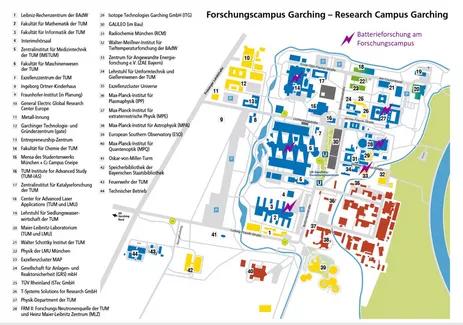
TUM.Battery
At the Technical University of Munich, an interdisciplinary network is researching battery systems along their entire value chain.
Why battery research?
Electrical energy storage and battery systems have become an indispensable part of our everyday lives. From laptops and mobile phones to homes and transport, they are essential for our communication and daily organisation. As a key technology for linking sectors, they are also a guarantee for success in the energy transition, especially when we think about the electrification of transport and the storage of renewable energy. Various technologies are being researched and optimised around the world. Developments are progressing rapidly. Today, the focus is still on lithium-ion systems, but the post-lithium-ion era is already in sight...
From materials research to manufacturing technology:
The Technical University of Munich (TUM) has long been involved in the development of various storage technologies and battery systems. Thanks to its broad range of expertise and the networking of relevant players, it is able to carry out forward-looking and application-oriented research that meets interdisciplinary challenges.
The entire value chain can be considered, from basic research in the field of materials in the natural sciences, through cell development and process technologies in electrochemistry and electrical engineering, to integration in manufacturing technologies in mechanical engineering. The transfer from research to application takes place through strong networking with industry and business. For example, automated production processes are developed, tested and optimised with the participation of the automotive industry. In addition to scientific and technical aspects, business aspects of the value chain play an important role in all phases. [MORE ABOUT RESEARCH]
More than 100 people are involved in battery research at the Technical University of Munich. In five faculties, eight chairs, two institutes and various departments and groups, thirteen professors conduct research with their research assistants and doctoral students.
Innovation through interdisciplinary collaboration
On the one hand, individual projects are carried out in the area of core competences, also in cooperation with partners from industry, business, politics and research. On the other hand, networked and interdisciplinary projects are carried out, allowing a bridge to be built between basic research, product development and production technology. The proximity to the Garching Research Neutron Source enables strong synergies: Lithium-ion batteries, for example, can be studied with neutrons during operation.
[MORE ABOUT PARTNERS]
